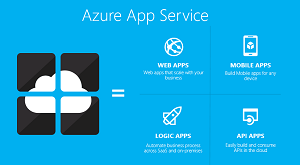News
With Microsoft OpenJDK Build, Azure App Service Adds Java 17 and Tomcat 10.0
Microsoft's Azure App Service now supports the company's own build of OpenJDK, bringing new support for Java 17 and Tomcat 10.0.
As part of its big push to further Java development in the Azure cloud, the company last year shipped the Microsoft Build of OpenJDK, an open source kit for Java featuring "backported fixes and enhancements we deem important to our customers and our internal users."
Early this year, Microsoft published an update on progress made in pointing its OpenJDK build to Azure platform services, including Azure Functions, Azure Spring Cloud and Azure App Service.
The latter, Azure App Service, is a fully managed cloud platform primarily targeted for building web applications. Microsoft says it enables developers to build and host web apps, mobile back ends and RESTful APIs without managing infrastructure.
 [Click on image for larger view.] Azure App Service (source: Microsoft).
[Click on image for larger view.] Azure App Service (source: Microsoft).
The company last week announced that a platform update to support the Microsoft OpenJDK build has now been fully rolled out, featuring brand-new platform runtimes for Java 17 and Tomcat 10.0. The latter is a free and open source implementation of the Jakarta Servlet, Jakarta Expression Language and WebSocket technologies, providing a "pure Java" HTTP web server environment in which Java code can run, according to Wikipedia.
Here's what Microsoft had to say about each.
Java 17
"Java 17 on App Service is distributed via the Microsoft Build of OpenJDK, a no-cost long-term supported distribution of the OpenJDK and Microsoft's new way to collaborate and contribute to the Java ecosystem. You can learn more about the Microsoft Build of OpenJDK from the documentation." More information is also provided in a YouTube video featuring an interview with Martijn Verburg -- the principal engineering group manager for the Java Engineering Group at Microsoft -- on the Microsoft Build of OpenJDK 17.
Java 8 and 11 were previously supported on Azure App Service. Note that, with the new Java 17 support, the app service is still running behind the mainstream Java channel, which saw the debut of Java 18 last month. Other Microsoft wares have been quicker to adopt the latest Java version. For example the company just this week announced that its Java on Visual Studio Code experience -- provided via extensions -- now supports Java 18. However, Java 17 is a Long-Term Support (LTS) release, while Java 18 is not.
Tomcat 10.0
"Tomcat 10.0 builds on Tomcat 9.0.x, supports Java 8 and later, and is the first Tomcat release to migrate from the Java EE 8 specification to Jakarta EE 9. This means that Tomcat 9.0 or 8.5 applications will require a refactor and rebuild to run on Tomcat 10.0 in almost all cases. This sample application illustrates the code changes that must be made to migrate a Tomcat 9 application from Java EE APIs to Jakarta EE APIs. For more information, please refer to the official Tomcat 10.0 migration guide on the Apache Tomcat website for guidance on migrating Tomcat 9.0 and 8.5 applications to Tomcat 10.0. Tomcat 10 on App Service is supported for Java 8, 11, and 17. It is distributed with Eclipse Temurin for Java 8, and Microsoft Builds of OpenJDK for Java 11 and 17."
About the Author
David Ramel is an editor and writer at Converge 360.